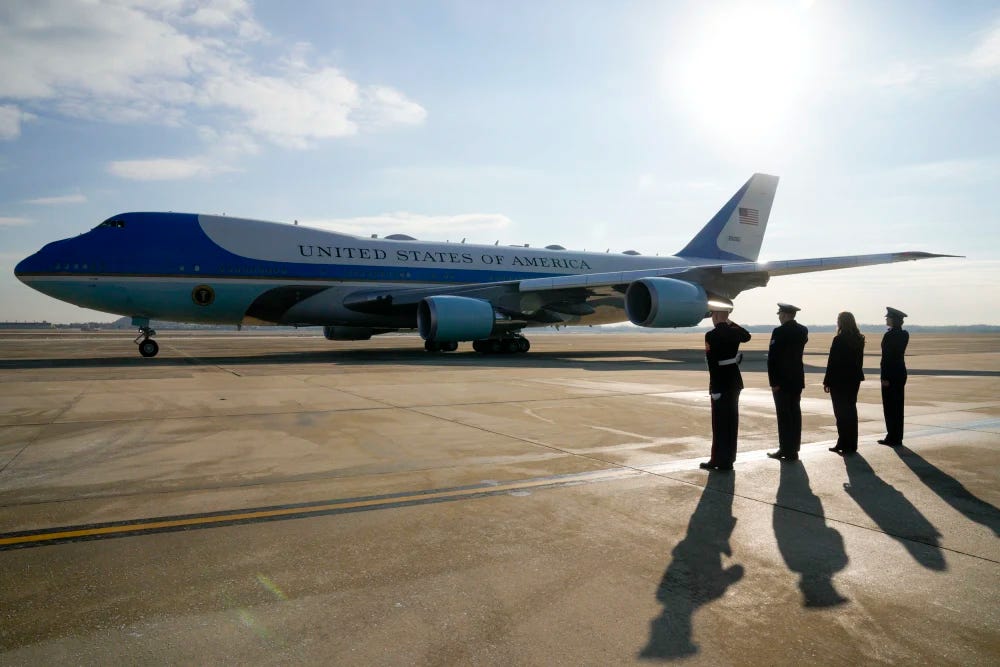Boeing Collaborates with Elon Musk to Expedite Air Force One Replacements
The two Boeing 747s, which are years behind schedule and $2 billion over budget, face challenges including design changes, labor shortages, and supply chain issues.
Boeing is partnering with Elon Musk to accelerate the delivery of the delayed Air Force One replacements, CEO Kelly Ortberg confirmed on Tuesday. The two Boeing 747s intended to replace the current presidential aircraft are currently more than $2 billion over budget and several years behind schedule due to complications such as design revisions, labor constraints, and ongoing supply chain issues.
The Air Force One project, which began under President Donald Trump’s first term, has faced significant hurdles. In 2017, Trump threatened to cancel the deal due to the high costs associated with the aircraft, but ultimately struck an agreement with Boeing to move forward. Now, the company is working with Musk, a prominent advisor to Trump, to find ways to deliver the aircraft more quickly and at a lower cost.
“We’ve been collaborating with Elon on the Air Force One program to find solutions that will reduce costs and help us deliver the aircraft sooner,” Ortberg said in an interview on CNBC’s “Squawk on the Street” following Boeing’s release of its annual financial results and 2025 outlook.
While it remains unclear if the aircraft will be ready before the end of Trump’s current term, Boeing is expected to provide an updated delivery schedule in the spring, according to an Air Force spokesperson.
Musk, the CEO of SpaceX and a key figure in Trump’s administration, has been working closely with the White House, particularly through his leadership of a commission focused on reducing government spending. Musk’s involvement in the Air Force One project underscores his growing influence in the administration's defense and aerospace initiatives.
"We’re working with Elon to explore ways to adjust the schedule and deliver the planes sooner, as the president has expressed his desire for quicker delivery," Ortberg added.
In the most recent quarter, Boeing incurred $1.7 billion in pretax charges within its defense and space division, which included costs related to the Air Force One program. Ortberg, who took over as CEO in August, replaced the head of the division in September with an internal interim leader to address the ongoing challenges.
As Boeing and Musk work together to resolve these issues, the fate of the new Air Force One aircraft hangs in the balance, with timelines and budgets both in flux.


